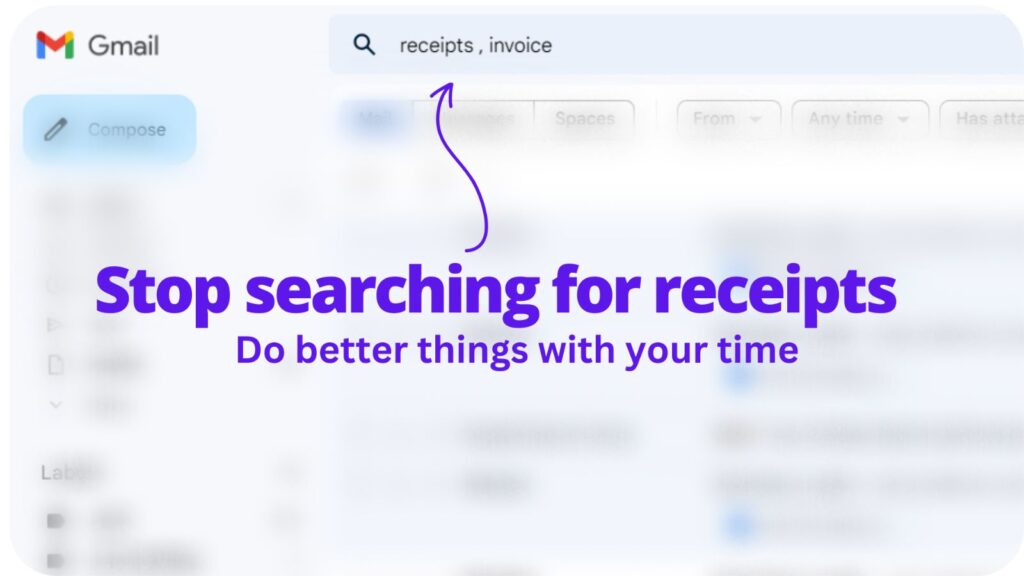Discover how you can save money on your tax return.
Does tax season stress you out? You’re not alone. But guess what? It doesn’t have to. You can actually save money on your tax return. Yes, you heard that right. We’re here to share easy-to-follow steps that help you keep more of your hard-earned tax money.
Understanding How to Save Money on Tax Return
What Are Tax Deductions and Credits?
So, what are tax deductions and credits? Well, they’re ways to cut your tax bill. Tax deductions let you subtract some costs from your income before figuring out how much tax you owe. This means you can report less income to the Internal Revenue Service (IRS).
A tax credit cuts your tax bill dollar for dollar. It’s like having a gift card for your taxes.
Importance of Filing Correctly
One key thing to remember is to file your taxes correctly. You see, mistakes can cost you a lot. If you make an error, you might miss out on tax savings. For example, you might forget to claim a tax deduction you qualify for. Or, you might calculate something wrong and end up owing more tax than you should.
So, how do you avoid this? Well, you can use tax software or hire a tax pro. These tools and people can help catch mistakes and find all the tax credits and deductions you qualify for.
The cost of tax software or a pro can often be a tax deduction too. So you might pay less tax just by trying to pay less tax.
Planning Ahead to Save Money on Tax Return

Why You Should Start Early
Starting early in tax planning is good. It helps you understand your tax situation. You can then make choices that reduce your tax bill. For instance, you could put money into retirement accounts. This move might help lower your income tax.
Business owners also benefit from early tax planning. They have to think about many tax rules. Starting early gives them time to understand these rules. This can help them save money and avoid tax problems.
Tax Withholding Adjustments
Sometimes you might get a big tax refund. This means you paid too much tax. So, you gave a tax-free loan to the government.
You can adjust the amount of tax taken from your pay. This is called tax withholding. If you lower this amount, you can keep more money each pay period. But remember, don’t lower it too much. You don’t want to owe money to the Internal Revenue Service.
To adjust your withholding, you need to fill out a new W-4 form. This form helps you decide how much tax to withhold. If you claim more allowances, less tax is taken out. But, if you claim too many, you may owe money at tax time.
How to Save Money on Tax Return with Deductions
Every tax year, you can use deductions to save money. Deductions reduce your taxable income. This means you owe less in income taxes.
Itemizing vs. Standard Deductions
Firstly, there are standard deductions. These are a set amount you can deduct. The amount changes each year. You don’t need to keep track of expenses for this.
But, there are also itemized deductions. Here, you list your expenses. These might be things like medical expenses or charitable donations. Itemizing can save you more money. But, it’s more work. You have to keep records of all your expenses.
So, should you itemize or take the standard deduction? If your itemized deductions are more than the standard amount, you should itemize. But, if not, you should take the standard deduction. You’ll save more money this way.
Commonly Overlooked Deductions
Some deductions are often overlooked. But, these can save you money on your tax bill. For example, did you know health savings account (HSA) contributions are tax deductible? So are qualified educational expenses. Even tax advice can be a deduction.
Another commonly missed opportunity is the tax deductibility of donation receipts. Understanding the rules around these can be beneficial, hence why a guide to tax-deductible donation receipts can come in handy.
Small business owners can deduct some expenses too. For instance, if you’re self-employed and work from home, you may be able to deduct home office expenses. And if you pay for health insurance, you may deduct these costs.
If you’re married, you might file jointly. Doing so can lead to more deductions. This might reduce your tax burden even further.
Using Tax Credits to Save Money on Tax Return

Tax credits can be a great way to save money. They can reduce the amount of tax you owe. In other words, tax credits can lower your tax bill. There are two types of tax credits.
Non-Refundable vs. Refundable Credits
First, we have non-refundable tax credits. These credits can lower your tax bill to zero. But, you won’t get a refund for any extra credit. For instance, if you owe $500 in taxes, and have $600 in credits, you pay no taxes. But, you don’t get the extra $100.
On the other hand, there are refundable credits. If your credit is more than your tax bill, you get a refund. So, in the same example, you’d get $100 back. In short, refundable credits can put money in your pocket.
Popular Tax Credits You Can Leverage
There are many tax credits to help you save money. For example, the Earned Income Tax Credit is for low- to moderate-income workers. This credit can give you a tax refund.
Another option is the Lifetime Learning Credit. This helps with the cost of education. It’s a credit for tuition and related expenses. Also, this is a great way to reduce your tax bill.
If you’re a business owner, you may qualify for the Small Business Health Care Tax Credit. This helps small businesses afford health insurance for their employees. In conclusion, tax credits can be a great tool for saving money on your taxes.
Expert Advice to Save Money on Tax Return
When to Consult a Tax Professional
Understanding tax receipts can be crucial when it comes to maximizing your tax savings. Think about seeing a tax professional when your taxes get tricky.
For instance, if you’re self-employed or own a small business, a tax pro can help. They can offer tax advice to lower your taxable income and increase your tax savings.
A tax pro is also handy if you have income from investments or rentals. They know the tax implications and can help you avoid paying more taxes than you should. In short, a tax pro can save you money on your tax return.
Benefit from Tax Software
Now, let’s talk about tax software. Tax software is like having a tax pro in your computer. It helps you file your taxes and highlights potential tax breaks. Therefore, you could pay less federal income tax.
The software does all the math for you, reducing errors. Also, it’s often cheaper than hiring a tax pro. Therefore, using tax software could be a cost-effective way to save money on your tax return. Remember, though, that software can’t replace personalized tax advice.
Common Mistakes to Avoid to Save Money on Tax Return
Some mistakes on your tax return can cost you. They might increase your tax liability or reduce your tax refund.
Missteps That Can Cost You
First, filing late is a big misstep. The Internal Revenue Service (IRS) charges penalties for late filing. So, always file your federal taxes on time.
Secondly, not reporting all income can get you in trouble. For example, if you have a side job, you need to report this income too. All in all, report all your ordinary income to avoid penalties.
Thirdly, not claiming all your tax benefits can cost you money. For instance, if you contribute to a 401(k) or Traditional IRA, you might be able to deduct these contributions. So, claim all your tax breaks to save money.
How to Prevent Tax Return Errors
Now, how can you prevent these errors? Firstly, start your tax return early. You’ll have more time to gather all your tax documents. Above all, you’ll have more time to check your return for errors.
Secondly, use tax software or hire a tax pro. Both can help you avoid common tax errors. For example, they can make sure you report all your taxable income and claim all your tax benefits.
Lastly, keep good records. Make sure to keep a record of your income and expenses. It plays a crucial role in preventing errors.
Frequently Asked Questions
Interrogations on Simple Techniques to Minimize Tax Obligations
When it comes to diminishing your tax liabilities, there exist various straightforward methods. One such approach is contributing to retirement funds like a 401(k) or a Traditional IRA.
Additionally, you have the option to make tax-deductible contributions to charitable organizations or deduct specific medical expenditures. It is crucial to maintain comprehensive records of these contributions for tax purposes.
The Advantages of Adjusting Tax Withholding
How can adjusting your tax withholding prove beneficial? By making appropriate adjustments, you can prevent the tendency to overpay taxes throughout the fiscal year.
If you frequently receive a substantial tax refund, it may indicate that you are unnecessarily allocating excessive funds from each paycheck towards taxes. By submitting a new W-4 form, you can modify your withholding to retain a larger portion of your hard-earned money.
Can Tax Software Facilitate Tax Savings?
Indeed, tax software can play a vital role in uncovering tax deductions and credits that may elude your awareness. Furthermore, it aids in reducing errors during the tax filing process, ultimately helping you evade potential penalties.
It is important to note, however, that while tax software can serve as a valuable resource for most taxpayers, it cannot substitute personalized tax advice from a professional.
Differentiating Tax Deductions from Tax Credits
What distinguishes a tax deduction from a tax credit? A tax deduction diminishes your taxable income, thereby reducing the amount you owe in taxes.
Conversely, a tax credit directly decreases your tax liability. In certain cases, certain tax credits can even result in a refund if they surpass the amount owed in taxes.
Conclusive Thoughts
Optimizing tax savings need not be an intricate undertaking. Armed with the right tools, knowledge, and strategic planning, you can leverage available tax deductions and credits.
Whether it involves contributing to retirement funds, adjusting your tax withholding, or employing tax software, numerous strategies exist to curtail your tax burden.
Always remember to seek guidance from a tax professional if uncertainties arise. Here’s to a less arduous tax season and increased financial resources at your disposal.

Collect receipts from your email automatically!
Try WellyBox - your AI assistant for receipts😃
Start for Free
